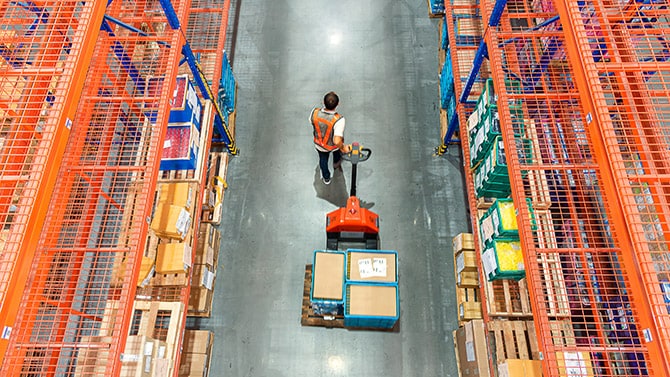Customs: Obligations resulting from Market Surveillance Regulation per 16 July 2021
30/04/21
The increasing volume of e-commerce has made it much more difficult for Market Surveillance Authorities to ensure that products comply with EU legislation. As such, Regulation (EU) 2019/1020 on market surveillance and compliance of products (i.e. the Market Surveillance Regulation) introduces a new framework for the surveillance and enforcement of product legislation.
Amongst others, this framework prescribes the obligations for economic operators and requires that there must be an economic operator in the EU to place certain categories of products onto the EU market (so an EU party that takes responsibility). Also, it introduces fulfilment service providers as potential economic operator.

Will this have impact to your business?
The new framework, and its obligations for economic operators, will apply as of 16 July 2021. As such, before this date, you should assess whether the requirement to have an economic operator in the EU (so an EU party that takes responsibility) applies for the products that you bring onto the EU market. Although the Market Surveillance Regulation applies whenever the relevant products are brought onto the EU market, this of course especially relevant for non-EU business that are selling goods in the EU, as well as for fulfillment service providers.
When an EU party that takes responsibility for the obligations is required (the legislation mentions this as ‘an economic operation in the EU’), non-EU businesses must ensure that another party takes on this role and complies with the obligations from the Market Surveillance Regulation. Otherwise, the relevant product may not be offered for sale on the EU market and Customs Authorities may prevent that the product is imported into the EU.
With respect to fulfillment service providers the Market Surveillance Regulation arranges that they will be the economic operator for the products that they handle when there is no other economic operator in the EU. As such, as a fulfillment service provider you should check whether you deal with the relevant products (destined for the EU market) and determine whether you want to be the economic operator (by virtue of law). If so, you must be able to provide the authorities with information or take certain action, when requested.
Applicable product categories
The requirement to have an economic operator in the EU applies to products for which the Commission has found the highest risks of non-compliance with EU product legislation. It concerns products that are covered by 18 regulations and directives, including, but not limited to:
- Personal protective equipment
- Electrical and electronic equipment
- Radio equipment
- Measuring instruments & non-automatic weighing instruments
- Construction products
- Gas appliances
- Recreational craft
- Toys
Economic operators and their obligations
For the products mentioned above, the Market Surveillance Regulation prohibits that they are placed on the market unless there is an economic operator in the EU who can cooperate with the market surveillance authorities and inform them when there is reason to believe that a product does not comply with EU legislation. This economic operator can be one of the following:
- The manufacturer of the goods;
- The EU established importer, when the manufacturer is not established in the EU;
- An EU established authorized representative who has a written mandate from the manufacturer;
- A fulfillment service provider, when it handles the product and none of the above applies.
The obligations of an economic operator under the Market Surveillance Regulation help ensure that the market surveillance authorities have access to the necessary information on the compliance of products. These obligations include:
- Verifying that the necessary EU declaration of conformity and technical documentation can be made available to the authorities upon request.
- Provide any further information that is requested by authorities to demonstrate the conformity of the product
- Inform the authorities when there is a reason to believe that a product presents a risk
- Cooperate with the market surveillance authorities and perform corrective actions when a product is non-compliant
In this respect, it is important to note that the economic operator will not become responsible for the product compliance itself, nor does the Market Surveillance Regulation impose additional legal obligations to economic operators in relation to the consumers or end-users of the product.
Fulfillment service providers
As mentioned above, a fulfillment service provider will – by virtue of law - be the economic operator when none of the other economic operators are established in the EU. In other words, when there is no manufacturer, importer or authorized representative based in the EU. Furthermore, the definition of fulfilment service provided by the Market Surveillance Regulations arranges that a company must fulfill at least two of the following services, without having ownership of the products: warehousing, packaging, addressing and/or dispatching.
As a final note, besides the assessment whether you are considered the economic operator, as a fulfilment service provider, you should make arrangements with your clients when you are the economic operator of a product. After all, unlike importers and authorised representatives, fulfilment service providers do not automatically have a connection with the manufacturer of the product, which would enable them to fulfil the obligations from the Market Surveillance Regulation.
Let’s Talk
In case you whish to discuss the impact of the Market Surveillance Regulation in more detail or require assistance in this matter, please feel free to contact Claudia Buysing Damsté or Jos Verstraten.
Contact us

















